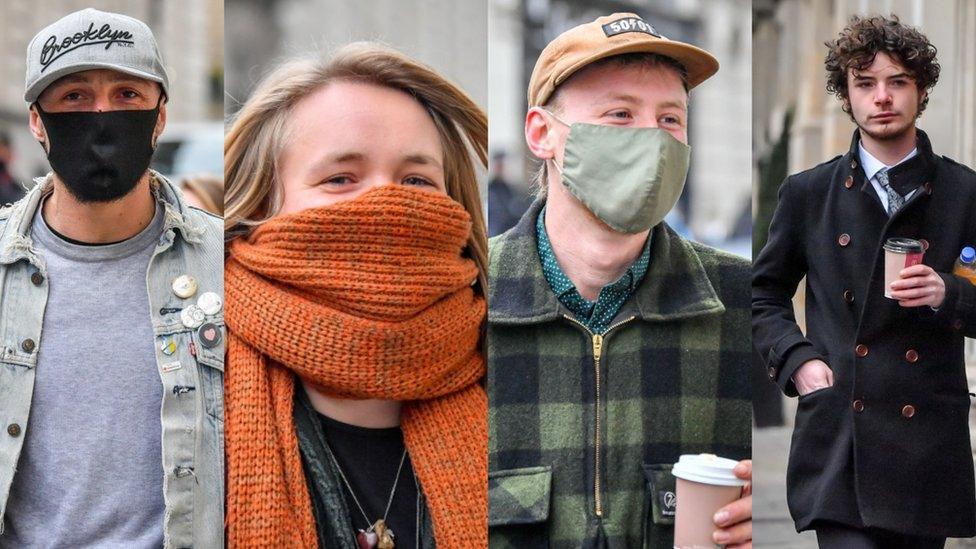Edward Colston: Protester called statue toppling an 'act of love'
- Published
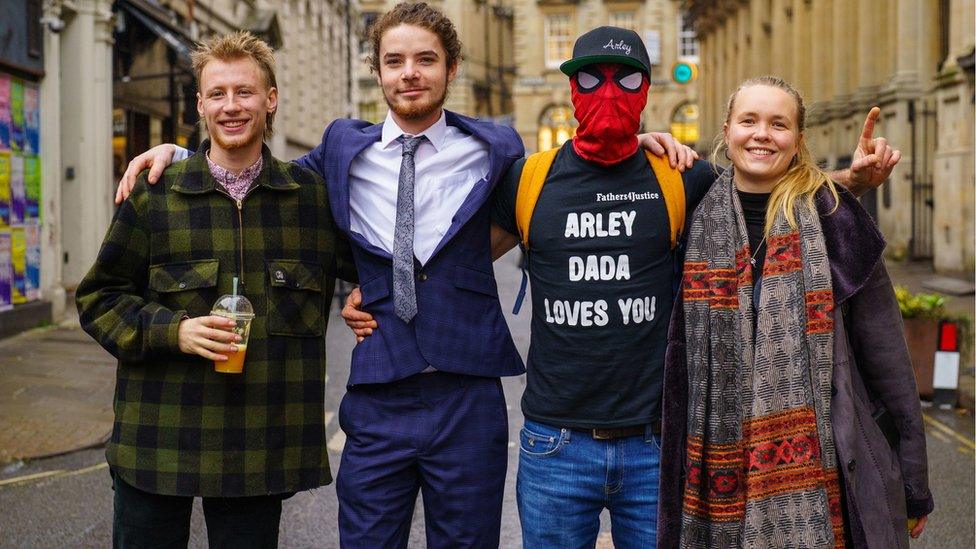
Milo Ponsford, left, Sage Willoughby, second left, Jake Skuse, second right (in mask), and Rhian Graham, right, are accused of criminal damage
A protester who helped pull down a statue of slave trader Edward Colston during a Black Lives Matter protest has described it as "an act of love".
Sage Willoughby, 22, is one for four people charged with illegally removing the bronze monument to the 17th Century merchant in Bristol in June 2020.
He said he had been signing petitions to have the statue removed for years.
Mr Willoughby and his co-defendants all denied criminal damage when they appeared at Bristol Crown Court.
The protest took place in response to the killing of 46-year-old black man George Floyd by police officers in the US.
During the demonstration, a crowd pulled down a statue of the controversial historical figure and threw it into the docks.
It was later recovered and is currently part of an exhibition at the M Shed museum in the city.
Mr Willoughby is on trial alongside Rhian Graham, 30, Milo Ponsford, 26, and Jake Skuse, 33.
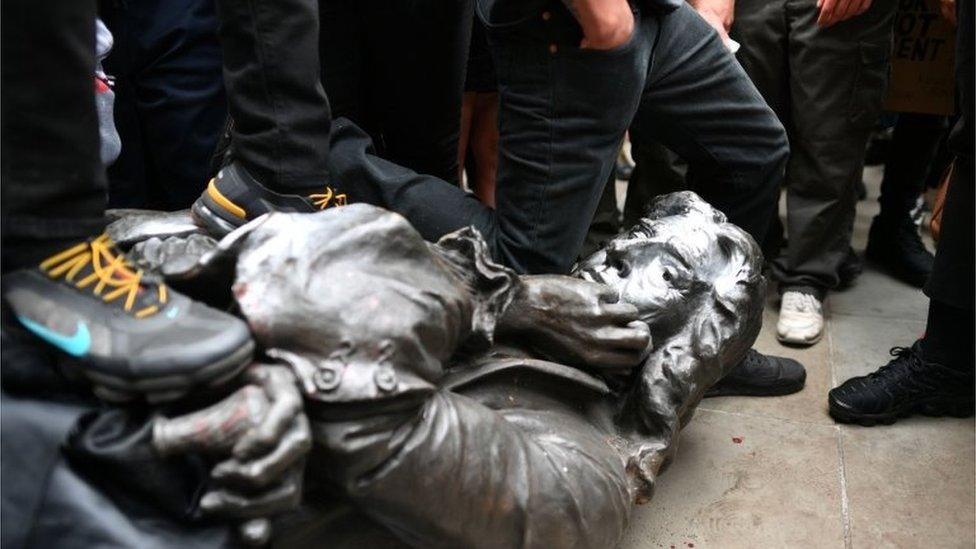
The toppled statue was rolled through the city's streets and thrown into Bristol Harbour in June 2020
Ms Graham, Mr Ponsford and Mr Willoughby are accused of helping pull down the monument, while Mr Skuse allegedly orchestrated it being rolled to the water and thrown in.
When asked in court if the three of them had planned to topple the statue, Mr Willoughby replied: "If you can call a very vague conversation the night before while we were having a few drinks a plan, then yes.
"I have been signing petitions since I was 11 years old to have that statue removed.
"I spoke to my elders about it. I was, quite frankly, laughed at - they said they had given up signing petitions because nothing was ever going to happen."
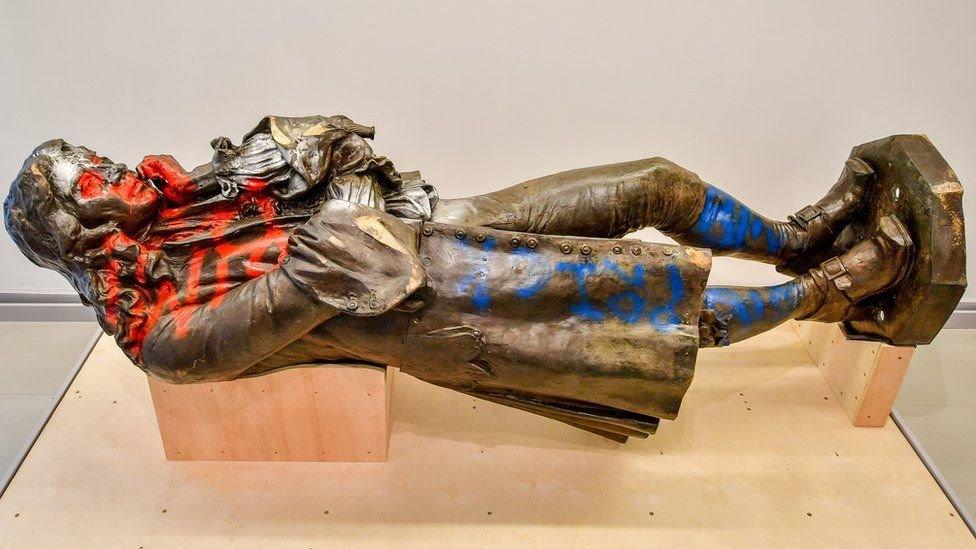
The statue has since gone on display at Bristol's M Shed museum
Mr Willoughby told the court he had grown up in the St Pauls area of Bristol, which has a large Afro-Caribbean population.
"Imagine having a Hitler statue in front of a Holocaust survivor - I believe they are similar," he said.
"Having a statue of someone of that calibre in the middle of the city I believe is an insult, and I will continue to believe that whatever the outcome of this (trial)."
'Thrilled and happy'
In footage of the incident Mr Willoughby can be seen scaling the statue and passing ropes around it.
He said he had not known if it was possible to topple the statue and denied acting violently, saying: "That was not an act of violence, that was an act of love for my fellow man.
"It is not something I expected was possible.
"When it happened I was as much surprised as thrilled and happy."
Also giving evidence was historian David Olusoga who explained that slavery was "a very emotionally-charged issue" for people of Afro-Caribbean descent.
He explained how Colston had been born into a wealthy merchant's family and had risen to become "the elite of the elite" in the Royal African Company.
He said that during his lifetime, Colston went through a process of "reputation laundering" and endowed huge sums of money to charitable causes in Bristol.
Following his death and continuing well into the Victorian period, a "Cult of Colston" sprouted in Bristol - with four societies dedicated to his memory.
Prof Olusoga was not challenged on his evidence by the prosecution.
But the prosecution argue it is "irrelevant" who Colston was or what he did, while the defence claim his history is vital to deciding the case.
The trial continues.
Related topics
- Published15 December 2021
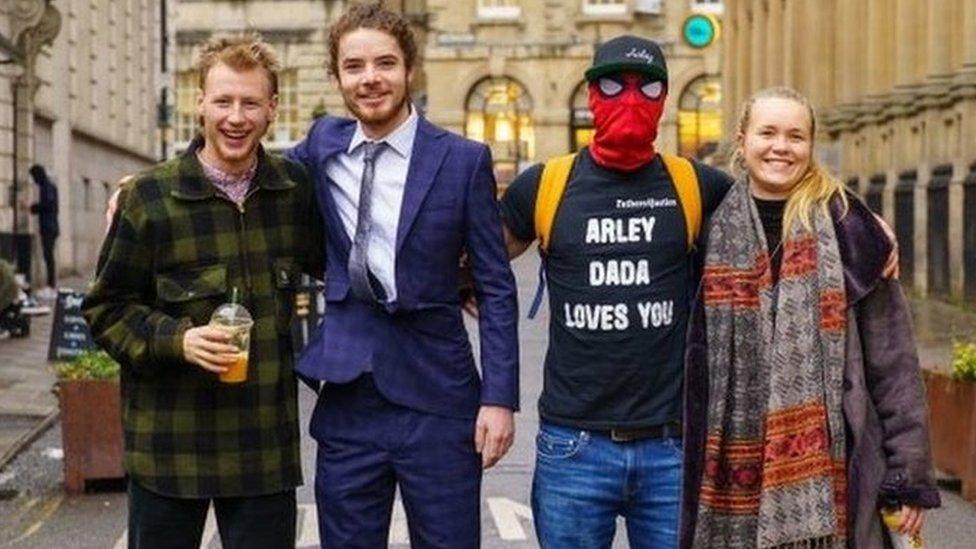
- Published14 December 2021
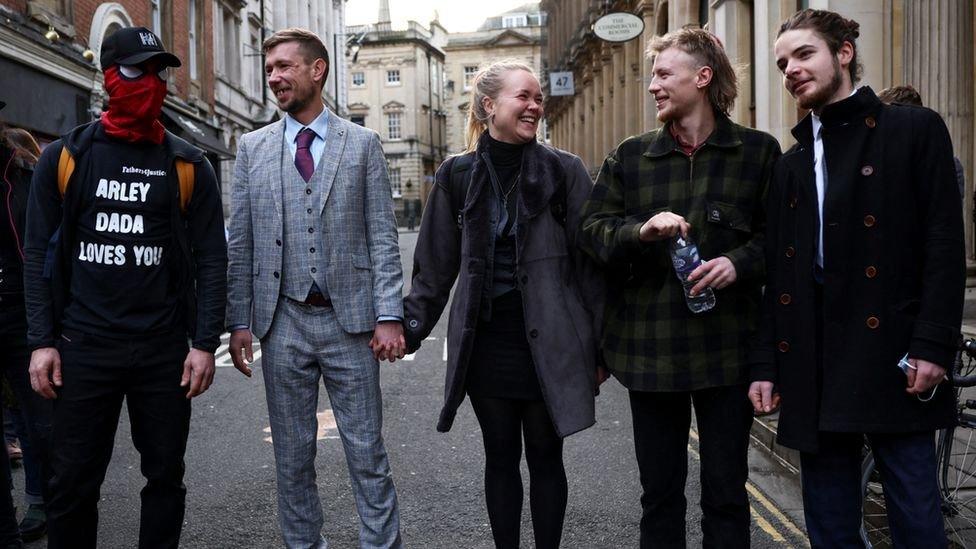
- Published13 December 2021
